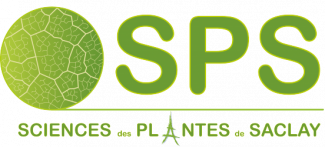Labex SPS
Labex SPS - Saclay Plant Sciences
Greater understanding of plants to meet the challenges of tomorrow.
In the current context of population growth, urbanization, climate change and limited natural resources, global food security and protection of the environment are more than ever strategic challenges for the planet. Therefore, there is an urgent and growing international need to develop a "sustainable intensification" of agriculture that has an improved impact on the environment (using less inputs such as fertilizers and pesticides) while providing a sufficient and stable production adapted to uses in food, feed, health, environment and industry. The research carried out by the Saclay Plant Sciences Laboratory of Excellence (SPS LabEx) aims to develop effective tools and increased knowledge to move towards this goal.
To achieve this, three strategic scientific and complementary challenges have been identified:
- Developing a predictive biology
- Understanding the mechanisms that control plant development and physiology
- Developing tools for research and innovation
Academic excellence to meet these challenges
In order to meet these challenges, the SPS LabEx strategy is to support academic excellence and to disseminate and promote results in order to generate the necessary innovations.
Research activities focus on understanding the genetic, molecular and cellular mechanisms that control the development and physiology of plants, but also their interactions with biotic and abiotic environments.
These studies extend from the gene to the whole plant by using complementary concepts and tools that include biochemistry, biophysics, imaging, molecular biology, genetics, genomics, cell biology, modeling and bioinformatics.
The SPS teams represent nearly 700 people including about 400 permanent researchers and lecturer-researchers and 150 PhD students and postdocs. SPS hosts several internationally renowned leaders as well as talented young researchers and benefits from infrastructures at the forefront of technology.
Research: major projects and cross-disciplinary actions
The strategy defined for research is implemented through different types of initiatives and actions. These include major collaborative projects.
Open calls are also launched annually to support the exploitation of results and the emergence of new topics in four priority areas:
- Sustainable intensification of crop productivity in a fluctuating environment
- Plants as "factories" for green chemistry and improvement of their quality for food and feed, health and the environment
- Understanding basic biological mechanisms
- The development of new resources and biotechnology for research, innovation and technology transfer
A strong involvement in plant biology training and a leader in research
Scholarships for PhD students and postdocs are associated with the different LabEx programs.
In addition, the SPS members perform about 7500 hours of teaching and training per year. In particular, they participate in the “Plant sciences” Master 2 program jointly accredited by many higher education institutions and the only M2 dedicated to plant biology at Paris-Saclay.
The LabEx finances equipment for practical training so as to offer students the working conditions worthy of an advanced laboratory.
SPS aims to become the largest consortium for research, teaching and training focused on plant biology in France and could be among the top five worldwide. The project is strongly supported by AgroParisTech, CNRS, INRA and the Universities of Paris-Sud, Evry and Paris-Diderot, as well as by the Foundation for Scientific Cooperation “Campus Paris-Saclay”, which coordinates the LabEx.
The SPS LabEx, a structuring environment for the plant biology community of Paris-Saclay
The Institute of Plant Sciences Paris-Saclay (IPS2) was set up in January 2015. It is the result of a major restructuring and unification of 3 of the 4 institutes initially involved in the SPS LabEx and it is supported by five institutions (CNRS, INRA and the universities of Paris-Sud, Evry and Paris-Diderot) and the Foundation for Scientific Cooperation (FCS).
The IPS2, with the other SPS labs, aims to ensure the quality and sustainability of research and teaching activities in the area of plant sciences on the Paris-Saclay campus, in order to maintain a high-ranking national and international level.
Research conducted at the IPS2 will focus on studying the growth, development and physiology of model plants and on transferring obtained new knowledge to crops and agricultural innovations.
The SPS LabEx is now composed of
- two major laboratories dedicated to plants, the IPS2 and the Jean-Pierre Bourgin Institute (IJPB, INRA / AgroParisTech / ERL CNRS, Versailles),
- as well as several teams from the Institute of Integrative Biology of the Cell (I2BC, CNRS / University of Paris-Sud / CEA, Gif-sur-Yvette),
- another large institute created after a major restructuring of research and teaching at Paris-Saclay, and others from the Quantitative Genetics an Evolution Research Unit (GQE–Le Moulon, INRA / Université Paris-Sud / CNRS / AgroParisTech, Gif-sur-Yvette).
Project type Laboratoire d'excellence (labex)
Contact
MME SELLIER Marie-Jeanne
Manager du LabEx Sciences des Plantes de Saclay (SPS)

